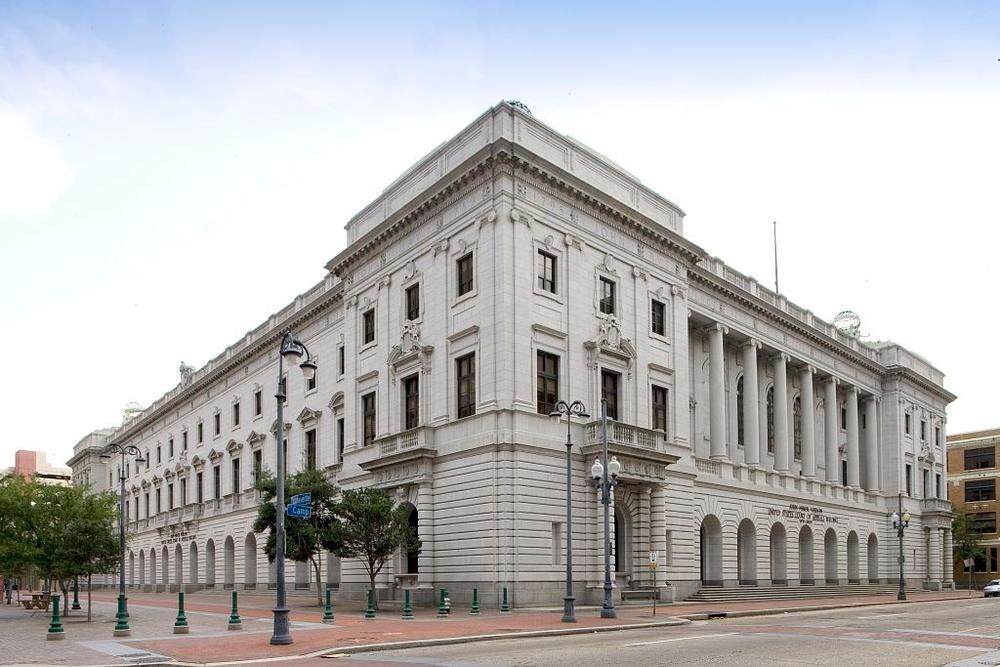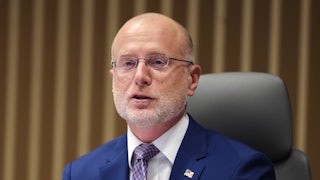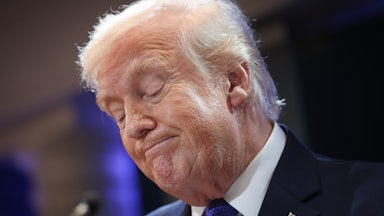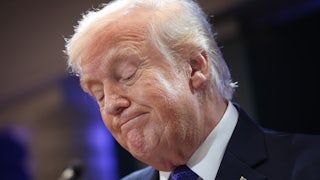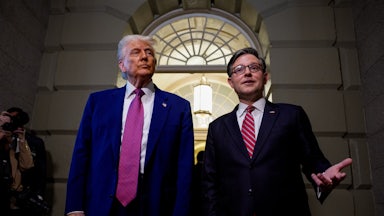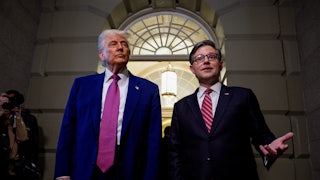Earlier this year, the Supreme Court abolished a long-standing doctrine known as “Chevron deference,” which had required courts to defer to federal agencies’ interpretation of the laws that empower them. Loper Bright Enterprises v. Raimondo was a historic ruling that is expected to hamstring federal agencies and empower federal courts to second-guess them—just as Republicans and their wealthy allies have long desired. But one of the first and most notable impacts of Loper Bright might well alarm those who celebrated the decision back in June.
In an otherwise unremarkable ruling on Monday, the Fifth Circuit Court of Appeals narrowed a federal tax-code exemption used by “dark money” groups to influence American politics. If it stands, the decision could have significant implications for how anonymous donor money shapes American politics.
At first glance, the case has nothing to do with politics. The legal dispute centers on Memorial Hermann Accountable Care Organization, or MHACO, a Texas-based nonprofit founded in 2012. “Accountable care organizations,” or ACOs, like MHACO are a product of the Affordable Care Act’s changes to certain Medicare programs. They are formed by health care providers and are designed to reduce costs by coordinating care for certain groups of patients. In exchange for reducing costs for Medicare and commercial insurers, ACOs receive a share of the savings.
Congress has enacted a variety of tax-exempt statuses into the Internal Revenue Code. Among them is 501(c)(4) status, which is reserved for an organization that is “not organized for profit but operated exclusively for the promotion of social welfare.” Generally speaking, the Internal Revenue Service defines a social welfare organization as one that works toward benefiting society as a whole, instead of a business or an entity that benefits only a certain group of people, like shareholders.
Charities and civic groups are perhaps the archetypal example of a 501(c)(4) group. But the IRS’s prevailing standard is that such groups can also spend funds on political and electioneering activities so long as that is not their “primary purpose”—in other words, so long as a bare majority of their expenditures go toward something that would qualify for the exemption. As a result, in recent years, 501(c)(4) groups have become the preferred vehicle for wealthy Americans to shape political discourse, elections, and more.
Federal campaign finance laws limit how much money an individual donor can contribute to a presidential campaign, for example. Donating to a 501(c)(4) allows the wealthiest patrons to circumvent those limits. Bill Gates, for example, reportedly made a hefty contribution last month to support Vice President Kamala Harris’s election bid by donating $50 million to Future Forward, a major pro-Harris political organization, via its 501(c)(4) group.
Funneling money through a 501(c)(4) group also allows wealthy Americans to avoid the disclosure requirements that apply to campaigns and certain other political organizations. This has led them to receive the “dark money” label because it can be difficult for outside observers to tell where the money is coming from. In 2022, Chicago businessman Barre Seid made a $1.6 billion donation to fund an organization led by Leonard Leo, one of the leaders of the conservative legal movement. Gates’s and Seid’s donations only became public knowledge through reporting, not through official disclosures.
These groups have historically told the IRS that their political expenditures fall within the 501(c)(4) category, albeit not without controversy. The Wall Street Journal noted earlier this week that the Obama-era IRS became embroiled in a scandal over the standard it used in the early 2010s, and that Congress had since barred the agency from enacting new rules about 501(c)(4) groups’ statuses.
In 2020, the IRS notified MHACO that it had rejected their bid to acquire 501(c)(4) status three years earlier. MHACO had argued that its work to reduce costs benefited not only patients and health care providers, but society as a whole. The IRS disagreed, noting that most of its revenue came from commercial insurance companies, not from the Medicare cost-saving program, and that any community benefits from its work were “incidental” to its actual operations.
“Courts have held that even organizations providing an ‘undisputed benefit to the people’ are not tax-exempt under section 501(c)(4) when their primary activities are commercial,” the Justice Department argued in court filings. “Such activities might ‘incidentally redound to society but [are] not the “social welfare” of the tax statute.’”
MHACO then asked the U.S. Tax Court to overturn the IRS’s determination. The court instead sided with the agency. In its 2023 ruling, the court eschewed the use of a legal test in Treasury Department regulations that looked to an organization’s “primary purpose” for tax-exempt status. Instead it applied what is known as the “substantial non-exempt purpose” test, which comes from a Supreme Court ruling in 1945 where the justices held that a “single, substantial non-exempt purpose”—in this case, the commercial activities with private insurers—is enough to deny the tax exemption.
The Fifth Circuit upheld the lower court’s ruling even though the non-exempt purpose test came from a case involving 501(c)(3) exemptions, not 501(c)(4) exemptions. “It makes little sense to treat the same phrase differently in two neighboring paragraphs of the same statute,” Judge Catharina Haynes wrote for the panel. “Importantly, we no longer are required to provide ‘Chevron deference’ to the Treasury’s interpretation of Section 501(c)(4).”
The Fifth Circuit made no mention of political expenditures, and its 11-page ruling did not address the potential broader consequences of interpreting the exemption’s scope more narrowly. Its ruling could nonetheless allow the IRS and the courts to take a harder look at how some 501(c)(4) groups spend their money and whether they can retain the tax exemption. If a group’s spending on a “non-exempt purpose” is “substantial” enough, it might no longer qualify for the tax exemption under the statutory terms. That, in turn, could shift how the wealthiest Americans influence the political system—and how much they can do it behind closed doors.
